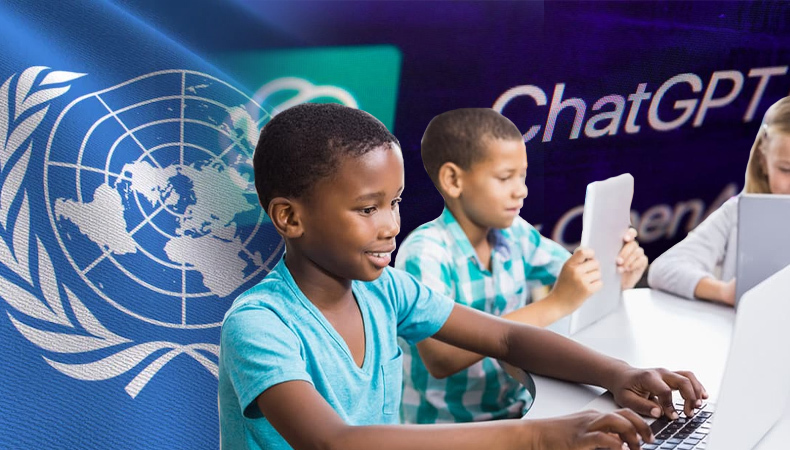UN Issues Strict Guidelines for AI Use in Classrooms

In a significant milestone, the United Nations has advocated for strict rules regarding the use of artificial intelligence (AI) technologies, notably generative AI programmes like ChatGPT, in educational settings through its education branch, UNESCO. This action is a response to growing worries about the moral ramifications and possible dangers of incorporating AI into educational settings.
The advice provided by UNESCO demonstrates how poorly prepared public authorities are to deal with the complex ethical issues raised by the widespread deployment of generative AI in educational settings. The organisation, which is based in Paris, has emphasised the necessity of establishing thorough regulations and safety measures for the appropriate use of AI in education, particularly in light of its effects on pupils, particularly younger ones.
The possible impact on children’s emotional health and susceptibility to manipulation when AI tools replace human educators is one of the main issues identified by UNESCO. According to Audrey Azoulay, the director-general of UNESCO, “Generative AI can be a tremendous opportunity for human development, but it can also cause harm and prejudice.” This idea emphasises how crucial it is for governments to involve the public and enact strict laws.
Keep Reading
The capacity of generative AI programmes like ChatGPT to write essays, poetry, and conversations from a limited set of stimuli has made them popular. The education industry was seen as a potentially lucrative business, which attracted significant investment despite the fact that this innovation generated worries about copying and cheating in academic contexts.
The recommendations from UNESCO highlight the potential advantages of AI technologies in education, including helping kids with specific needs, taking part in Socratic discussions, and supporting research. It does highlight the need for strong government controls as well as collaborative efforts between instructors, students, and researchers in the design of these technologies in order to ensure their safe and effective integration.
While the UNESCO guidelines do not define a minimum age requirement for pupils utilising AI technologies, they do point out that ChatGPT, for example, has a lower age requirement of 13. Notably, there are arguments in favour of lifting this age restriction to 16, which reflects worries about the propriety and possible dangers of allowing younger children to interact with generative AI.
In conclusion, the UN’s proposal for stringent guidelines and laws governing the use of AI in schools emphasises the need for a balanced strategy to maximise the advantages of AI while minimizing its possible drawbacks. The delicate balancing act between innovation and ethical considerations continues to be a huge problem for educators, governments, and society at large as AI develops and plays an increasingly significant role in education.







